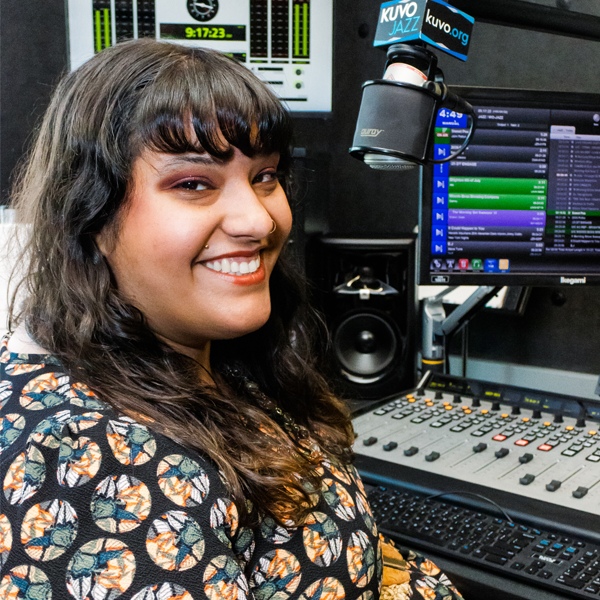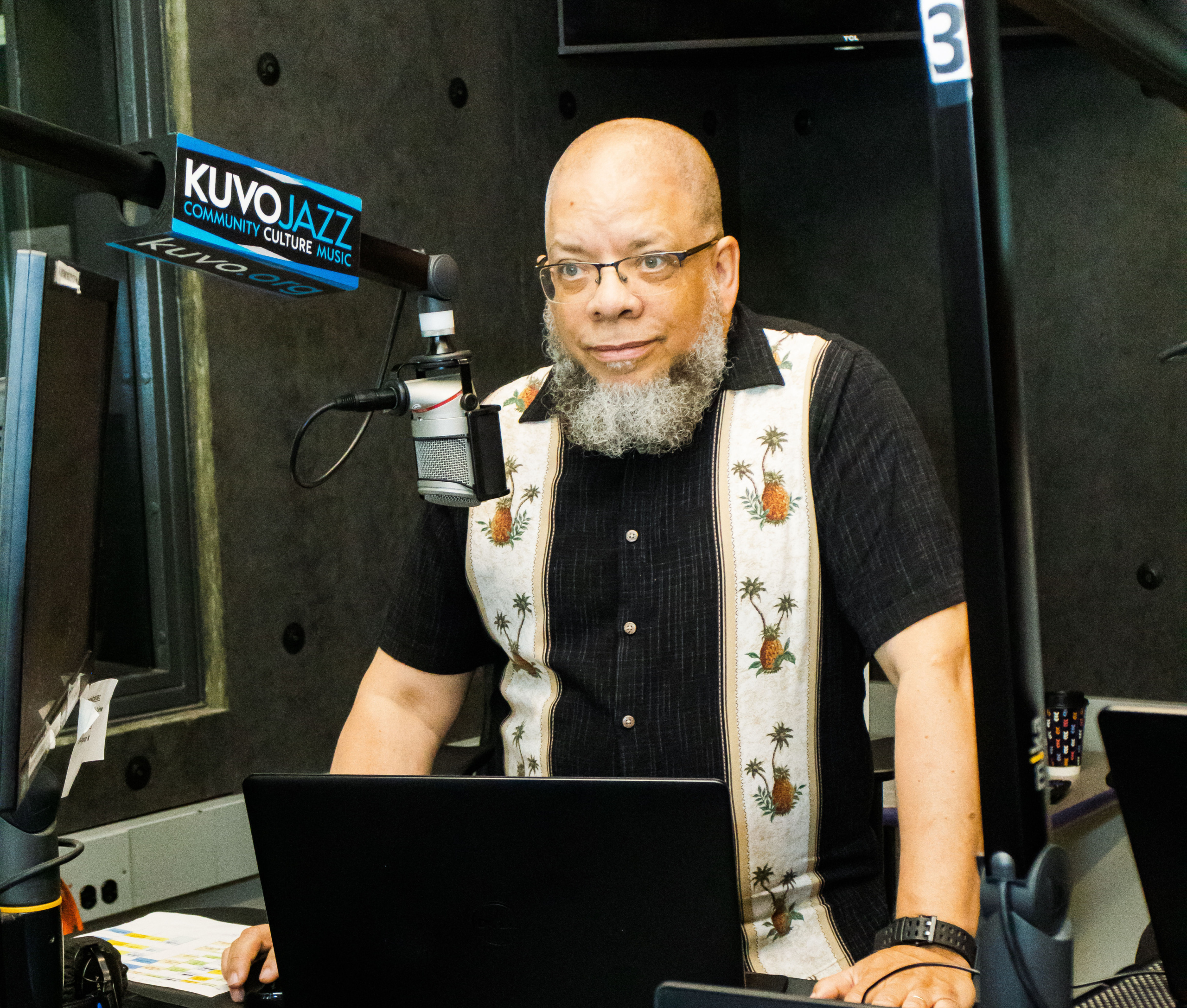Live & Local: Too Hot to Handel
 One of the mainstays of the holidays in Denver is the Colorado Symphony and Chorus performance of “Too Hot to Handel,” which is in performance this Saturday night, December 21, and Sunday afternoon, December 22. Chorus director Mary Louise Burke has been with the production since it started in the 1990s. She visited The Morning Set to share some stories about how the gospel, soul and jazz reinterpretation of Handel’s work, and the chorus that sings it have evolved.
One of the mainstays of the holidays in Denver is the Colorado Symphony and Chorus performance of “Too Hot to Handel,” which is in performance this Saturday night, December 21, and Sunday afternoon, December 22. Chorus director Mary Louise Burke has been with the production since it started in the 1990s. She visited The Morning Set to share some stories about how the gospel, soul and jazz reinterpretation of Handel’s work, and the chorus that sings it have evolved.
Mary Louise Burke:
Well, we started it here in Colorado. The first time was 1998, and we did it for 17 straight years. Took a little break there, came back, had a little break over the pandemic, and back. Now we did it a couple of years ago and glad to be doing it again this year because it’s always so popular.
Steve Chavis:
It goes back to when Marin Alsop was here. Is that when it started?
MLB:
Exactly. Marin Alsop actually thought it up in 1992, so that’s over 30 years ago now. And she just felt like maybe there’s a way to get younger people into the hall, maybe to get some people into a hall to hear a Messiah that normally wouldn’t come, maybe aren’t used to 18th-century music, maybe have a little bit of some gospel, some jazz. So she got together with a couple of her colleagues, arrangers, Bob Christianson and Gary Anderson, and they just sat down and said, let’s pick some pieces out of this Handel Messiah, and just try some different things with them. So it’s all the same text, it’s mostly the same music, maybe a different harmonic structure, but definitely a different feel and updated feel. So in the early days, Marin actually said, “Oh, if you like the Handel’s Messiah, you shouldn’t come. This is quite different.” But now, after all these years, I hear Too Hot to Handel and I hear Handel’s Messiah.. but with a great feel.
Carlos Lando:
Mary Louise, you’re bringing back so many memories because we had Marin Alsop in our studio for a couple of years consecutively at Five Points when all of this came out. And that’s exactly what almost her words were, verbatim. She talked about why she wanted to do it and how she was inspired and so, bringing back memories. This morning I’ll tell you…
SC:
The performances are on Saturday night and Sunday, a matinee coming up at Boettcher Concert Hall.
Abi Clark: So, I want to hear about this choir. Is it an audition based or is it a standing choir?
MLB:
Well, we started in ’98, the symphony engaged New Hope Baptist Marvelous Choir, Majestic Praise Choir directed by Daryl Walker. And so that first year it was about a hundred new hopers, as I call them. But then because of the acoustics at Beottcher, we said, let’s augment it. So we threw in a few of the Symphony Chorus people that same year. And then we did that for many, many years with New Hope Baptist and some Colorado Symphony people. Over the years, though, it’s been opened up to the community. And now, so you too, Abi can come and sing next year
AC:
Any alto spots?
MLB:
Absolutely! And all we ask is that you are currently singing in a church or community choir. But it’s wonderful because we have 165 singers from about 75 different choirs in the Denver Metro area, whether they’re church choirs or community choirs or small singing groups or whatever. So now we’re called the Too Hot to Handel Community Chorus.
SC:
It’s kind of the feeling I get when you’re standing in front of a brass or reeds section, you feel that rush of wind coming at you. 165 voices.. I mean, they’re hitting the back of the room!
MLB:
Well, we hope so. We hope so. But it’s a big orchestra too, with some extra instruments. It’s not a Handel orchestra. Then they throw in some saxophones and a rhythm section and a Hammond organ…
CL:
Hey, you got to swing a little bit!
MLB:
We got to swing a little bit! So I always tell them, I say, ‘If you haven’t done it before oh, I can’t wait until I see your face at that first rehearsal near the orchestra.’
SC:
I guess musicians and the composers and the arrangers have taken some liberties to keep it current as it was when Handel first did it. It was the popular music of the time.
MLB:
Exactly right. And so, in the Handel music in that era, you could improvise, especially like for instance, the harpsichord would be expected to improvise. Well, we have a piano that just really improvises. The singers would do a bit of improvising and Handel’s Day, ornamentation, we call. Now we call it scat singing now in this version. So, it’s just brought up to date with all that kind of thing. And for instance, a lot of the pieces are basically the same, but all of a sudden, a different feel. This makes me laugh. “Every Valley” is listed as “andante”, which means sort of slow. Oh, in this version it’s listed as “up-tempo, gospel, funk.” So instead of just singing, normally that’s a tenor solo, but here it’s like “Every valley, every valley, Lord” from the chorus. And they just keep doing that and he scats over the top and then it gets bigger and bigger and bigger, and he gets higher and crazier, Roderick Dixon, our tenor soloist, and then crash into that big ending. And that’s the first big kind of ending in the show. It’s right near the beginning and the audience goes crazy. And then we say, Fasten your seat belts. We’re here to have some fun for the evening.
LINK: Tickets – Colorado Symphony
 Catch “Live & Local” every Tuesday & Thursday on KUVO. Tune in to KUVO JAZZ 89.3 FM in Denver and listen to The Morning Set, weekdays from 7 – 10 a.m. MT. You can also stream online here at kuvo.org or listen to the KUVO app.
Catch “Live & Local” every Tuesday & Thursday on KUVO. Tune in to KUVO JAZZ 89.3 FM in Denver and listen to The Morning Set, weekdays from 7 – 10 a.m. MT. You can also stream online here at kuvo.org or listen to the KUVO app.
Stay connected to KUVO’s programs and our community! Sign up for the Oasis E-News today!
Become a Member
Join the growing family of people who believe that music is essential to our community. Your donation supports the work we do, the programs you count on, and the events you enjoy.
Download the App
Download KUVO's FREE app today! The KUVO Public Radio App allows you to take KUVO's music and news with you anywhere, anytime!

